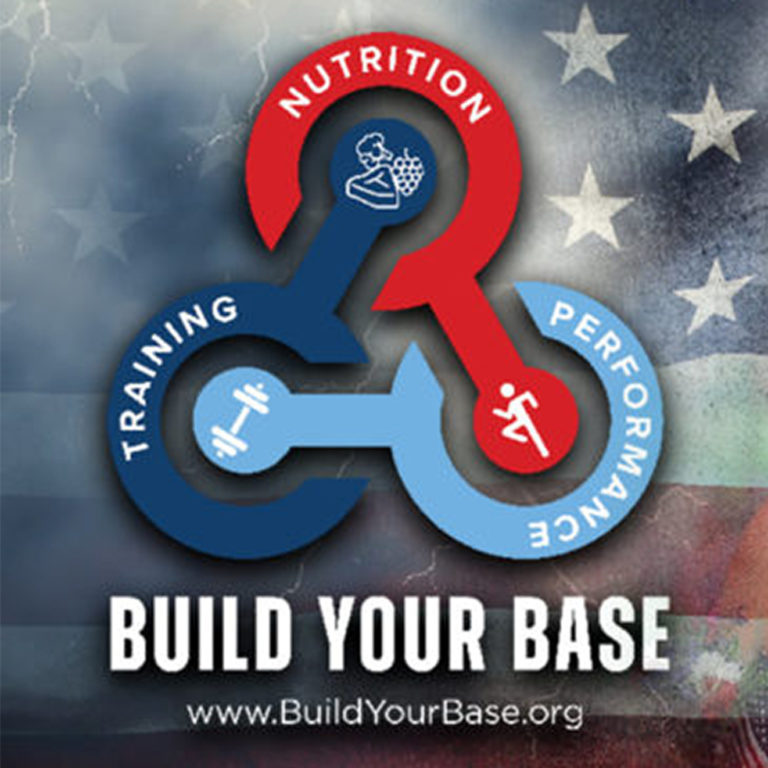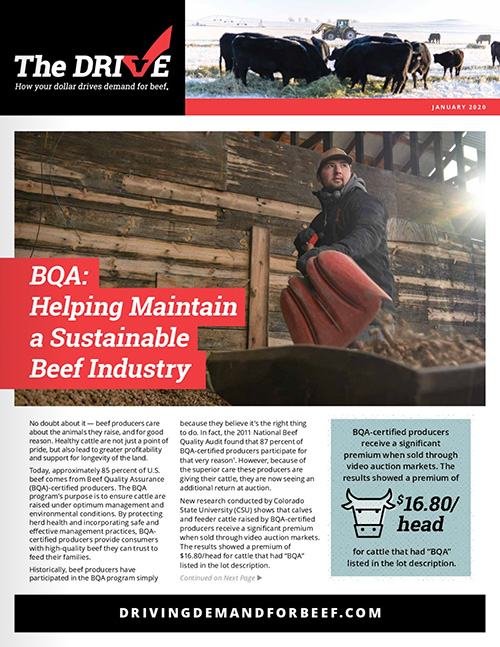
The Checkoff Ensures Beef’s Inclusion in a Healthy Diet
Every five years, the U.S. Department of Agriculture (USDA) and Health and Human Services (HHS) work together to update and release the Dietary Guidelines for Americans (Dietary Guidelines.) Each edition of the Dietary Guidelines reflects the most current nutritional science and advises consumers on what to eat and drink for better health and reduced risk of chronic disease. The 2020 to 2025 Dietary Guidelines for Americans Advisory Committee (DGAC) is comprised of 20 health and nutrition experts who are responsible for developing the recommendations for the USDA and HHS. The Dietary Guidelines provide a roadmap for healthy eating and serve as the foundation for federal nutrition programs; school, military, hospital and nursing home menus, and many other expert nutrition recommendations.
Because the Dietary Guidelines has a significant influence on consumer eating habits, the Beef Checkoff works diligently to ensure beef is well represented in this publication. For the most recent edition, the National Cattlemen’s Beef Association (NCBA), a contractor to the Beef Checkoff, submitted 21 sets of public comments and more than 100 research studies supporting beef’s role in a healthy diet.
The comments submitted to the DGAC on behalf of the Beef Checkoff reviewed the scientific evidence on the following topics:
- Beef’s critical role in growth and development, especially as a rich and high-quality source of iron for older infants, women and girls.
- The large body of high-quality evidence consistently showing that lean beef supports heart health as part of a healthy diet.
- The vital role beef plays as a source of high-quality protein and essential nutrition for the aging population.
- Dispelling the myth that Americans are overconsuming red meat, when in fact, Americans, on average, eat less than two ounces of beef each day 1, which is in line with current DGA recommendations.
- The best scientific practices for evaluating beef-related research, including accurate meat definitions.
- Research reinforcing the importance of flexibility in choosing beef in a variety of healthy diets, including those low in carbohydrates and high in protein.
When the Beef Checkoff submits research to be considered in these guidelines, it is actively fighting for consumers to understand that beef is a reliable dietary choice for those wanting to live a healthy lifestyle. To view a list of the comments submitted to the DGAC by NCBA, on behalf of the Beef Checkoff, visit www.beefresearch.org
Also submitted were gold-standard research studies that further reinforce beef as an important source of high-quality protein for Americans of all ages. These studies included Checkoff-funded research demonstrating how lean beef can be the protein of choice in many healthy diets, including the popular Dietary Approach to Stop Hypertension (DASH) diet and Mediterranean Diet. Other submitted studies – like the BeefWise study – showed that low-carbohydrate and higher-protein diets including lean beef can help people lose weight while maintaining muscle mass and heart health.
One of the most recent studies, conducted by Kevin C. Maki, Ph.D., at Indiana University, was published in May by the Journal of Nutrition. Researchers studied 33 participants, 26 women and 7 men who were at risk for Type Two diabetes. They measured the participants’ cardiometabolic risk factors at the end of each feeding phase and compared each individual’s factors throughout the trial. Half of the participants followed the USDA healthy eating pattern of up to 1.2 ounces of red meat per day 2. The remaining participants began a similar pattern that contained an additional 5.3 ounces of lean, unprocessed beef per day in place of refined starches. The study’s critical takeaway was that individuals have the flexibility to include up to about six ounces of lean, unprocessed beef in daily healthy diets without increasing risk factors for heart disease or diabetes.
This study proves beef can be a part of a healthy diet and gives consumers the flexibility to include more lean unprocessed beef in their daily diets. The Beef Checkoff will continue to support cutting-edge nutritional research with leading scientists at universities and research institutions to understand beef’s role in health.
- 2010 Lean beef contributes significant amounts of key nutrients to the diets of U.S. adults: National Health and Nutrition Examination Survey.
- 2020 Substituting Lean Beef for Carbohydrate in a Healthy Dietary Pattern Does Not Adversely Affect the Cardiometabolic Risk Factor Profile in Men and Women at Risk for Type 2 Diabetes
The Beef Checkoff program was established as part of the 1985 Farm Bill. The checkoff assesses $1 per head on the sale of live domestic and imported cattle, in addition to a comparable assessment on imported beef and beef products. States may retain up to 50 cents on the dollar and forward the other 50 cents per head to the Cattlemen’s Beef Promotion and Research Board, which administers the national checkoff program, subject to USDA approval.






























